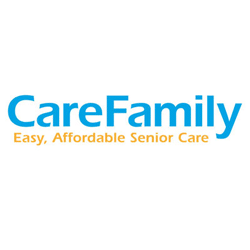By Stephen Tweed
You are doing fine. You’ve been in the home care business for the past five years and you’ve grown your company to 2,500 hours per week. That puts you in the top 25% of companies in the industry. Your growth has slowed a bit as your market is becoming saturated by more and more competition.
Then suddenly it happens. A new start up tech company enters the home care business in your local market and sucks all the air out of the room. Welcome to the age of new disruptors.
My friend and professional speaking colleague, Dan Burrus, frequently talks about how new uses of technology can disrupt an industry. We may be seeing that now in home care with the start up of at least four new technology companies with plenty of high-powered investors.
Tom Knox is an amazing entrepreneur who has achieved major accomplishments in the home care industry. Ten years ago he started SeniorCorp in Virginia Beach, VA and grew it to a company providing 12,000 hours of in-home care per week. When the economy tanked in 2008, Tom began to think about ways to diversify his business to increase the growth potential and reduce the risk. The outcome was a totally new company called Care Family. Care Family is an online home care business that uses technology to recruit caregivers and recruit clients and then matches them up. This on-line service uses a unique domestic employer W-2 model. Back office systems make the client the employer, and sets them up with an EIN, payroll processing, unemployment comp, and in some cases workers comp. Because the caregivers are employed directly by the consumer, they still qualify for the federal companionship exemption, so this has become a great alternative for families wanting live-in care.
Care Family began serving families in 2012, and today is facilitating care in 44 states, has 25,000 caregivers in it’s system, and continues to experience steady growth in clients and caregivers.
The company that has gotten the most publicity the past year or so is Honor. 
Take the hottest business trend of the mobile era: the marketplace model that matches supply and demand à la Uber or TaskRabbit or Kickstarter. Mix in some special-purpose tech gadgets and some savvy, experienced entrepreneurs. Sprinkle a bit of Apple retail store magic dust.
Is the recipe good enough to solve one of America’s most pressing, intractable, multi-billion dollar societal problems?
Marc Andreessen thinks it is. So does Apple stores creator Ron Johnson and former Sen. Bob Kerrey. And so do Yelp CEO Jeremy Stoppleman, Facebook CTO Mike Schroepfer, PayPal co-founder Max Levchin and a long, long list of notable Silicon Valley braniacs, entrepreneurs and investors. Jessica Alba and Cash Warren are on board too.
Collectively they are backing Honor, an ambitious new effort to vastly improve home care for the rapidly growing number of elderly Americans. Honor was started by four co-founders; Sandy Jen, Cameron Ring, Monical Lo, and Seth Sternberg.
I had the privilege of interviewing Seth a couple of months ago as he reached out to us to learn more about Leading Home Care and how we might help them grow Honor.
Don’t let Josh Bruno’s charming smile and young age fool you. He may only be 29 years old, but Bruno is a fierce disruptor with a mission to overhaul the senior in-home care industry.
Bruno witnessed first-hand as his family struggled to find quality care for his 93-year-old grandfather. When the highly-independent, World War II veteran got sick, Bruno and his relatives scrambled to find help, but it only resulted in frustration. “It was a revolving door of caregivers who didn’t really have any context of what was going on,” Bruno says. “Something was clearly wrong in the way the whole system worked.”
Hometeam aims to rethink how in-home care is administered to senior citizens. The two-year-old healthcare startup has raised $38.5 million to date with backers including Oak HC/FT, Lux Capital, IA Ventures, and Recruit Strategic Partners. Kaiser Permanente Ventures also just announced a $5 million investment in the company. The caregivers at Hometeam are W-2 employees with healthcare benefits, 401-K plans and a career progression path. The company rigorously vets its in-home aides and pays them about $15 an hour – 30% to 50% more than the hourly industry standard wage of $9.50. Clients pay about $20 an hour for the service.
Hometeam currently receives about 4,000 caregiver applications a month, and it accepts roughly 1% after doing an extensive background screening, calling references, analyzing the results of an hour-long questionnaire and holding in-person interviews. The company serves clients in metropolitan areas of New York, New Jersey and Pennsylvania. Bruno says Hometeam will expand to 10 new cities across the country this year.
The first time Kyle Hill saw his father cry was after he discovered that the caregivers for Hill’s 95-year old grandmother, who lived alone in Seattle, had been stealing from her and had been mistreating her. Hill’s father, a professor in Ohio, was forced to take a leave of absence from work to come to the rescue and hire a new caregiver. After seeing the suffering his grandmother went through, Hill founded HomeHero, a marketplace for matching licensed caregivers with the elderly.
The company said it has raised $20 million in new funding led by Graham Holdings, the media and business conglomerate created by Graham Family, which previously owned the Washington Post. Other investors that backed the round include Chinese Internet giant Tencent, Social+Capital Partnership, LA-based incubator Science, and the Launch Fund. The startup had previously raised $3 million from Science and others.
In 2014, HomeHero provided 1 million hours of care to seniors around Los Angeles and signed-up and interviewed more than 1,600 caregivers. Hill says that the cost of the startup’s caregivers end up being 40% to 50% lower than through private agencies, which often pass on larger fees. The average rate for a caregiver through HomeHero is $18 per hour. The company takes a 15% service fee, with the rest going to the caregiver.
Will Disruption Affect You?
What effect will these new industry disruptors have on your home care business? In the short term, perhaps not much. In the long term, the growth of these online home care companies will create a much greater awareness of the need for home care services, and the availability of services from an array of companies. For the past thirty years, we’ve worked in the home care space providing consulting and research to help owners and CEOs grow their businesses. We’ve focused on the three types of home care companies; independents, franchises, and affiliated. Now we ad a fourth dimension; the Digital home care companies.
What do you think? What are you seeing in your local marketplace? What are the major trends shaping the future of home care in America?
Let us know. We are always looking into the marketplace to spot the forces and trends that are shaping the future of home care. We’d love to know what you are seeing in your local market. Please send us your comments and questions






